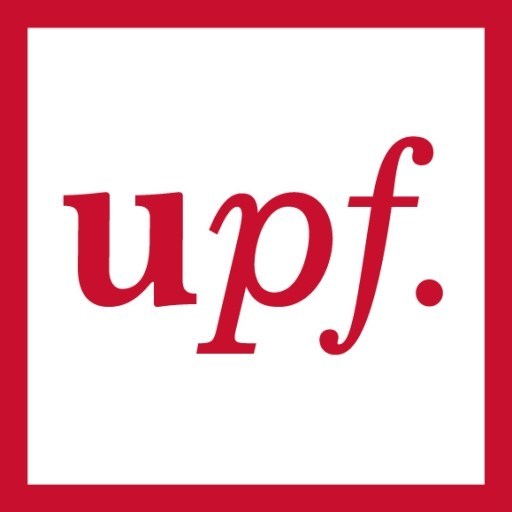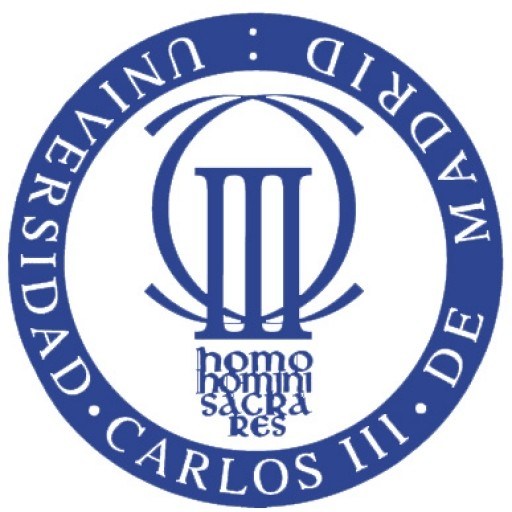Photos of university
The Bachelor's Degree in Information and Communication Technologies at Pompeu Fabra University offers students a comprehensive education in the essential aspects of modern technology, computer science, and communication systems. This program aims to prepare students to meet the growing demands of the digital world by providing them with a solid foundation in software development, hardware systems, networking, cybersecurity, and data management. Throughout the course, students will explore innovative solutions to real-world problems, developing both technical skills and critical thinking abilities necessary for a successful career in the technology sector. The curriculum combines theoretical knowledge with practical applications, including hands-on projects, laboratory work, and collaborative activities that foster teamwork and problem-solving skills. Students will also learn about human-computer interaction, digital communication, and the social implications of technological advancements, ensuring they can contribute responsibly and ethically to the digital economy. The program is designed to be flexible, offering specializations in areas such as software engineering, network technology, and multimedia systems, allowing students to tailor their education to their interests and career aspirations. Additionally, the degree emphasizes innovation and entrepreneurship, encouraging students to pursue their own ideas and startups in the rapidly evolving ICT industry. Throughout their studies, students will benefit from close ties with industry partners, internships, and opportunities to participate in research projects, enhancing their employability and professional growth. Graduates of this program will be well-equipped to work in a wide range of fields, including information systems, telecommunications, software development, data analytics, and more. They will also possess the skills and knowledge needed to adapt to ongoing technological advances and to contribute positively to the digital transformation of society. The Bachelor's Degree in Information and Communication Technologies at Pompeu Fabra University combines rigorous academic training with practical experience, making it an excellent choice for future professionals eager to shape the technological landscape of tomorrow.
Academic contents
In addition to producing the doctoral thesis, the programme includes the following training activities:
- Research seminars, in order to address specific issues of interest for various research lines. Attendance at the seminar is compulsory, and includes work on one of the topics presented.
- Before the end of the first year, doctoral students prepare a research plan that includes at least a summary of the state of the work, the methodology to be used and the objectives to be attained, and the means and the timeframe to achieve them. According to the research plan, the Postgraduate and Doctorate Academic Committee will assign a three-person tribunal to evaluate the public presentation of the research plan.
The thesis supervisors can also recommend specific courses on some of the master's programmes coordinated by the department to their students, in order to complete their research training.
The thesis supervisors can also recommend specific courses on some of the master's programmes coordinated by the department to their students, in order to complete their research training.
Lines of research of the doctorate
The research lines are the research work carried out by the research groups in the department. These research groups are grouped in four areas:
Cognitive and intelligent systems
- Cognitive, computational and robotics
- Synthetic and emotional perception and cognitive systems
- Artificial intelligence and theoretical computer science
- Natural language processing
- Ubiquitous computing
- Information retrieval and data mining
- Cognitive media technologies
Audiovisual technologies
- Image processing and computer vision
- Image processing for enhanced cinematography
- Audio and music processing
- Human-computer interaction, graphic and educational technologies
Networks and communications
- Network technologies and strategies
- Information theory and coding
Computational biology and biomedical systems
- Computational neuroscience
- Biomedical instrumentation and signals
- Simulation, vision and modelling systems in biomedicine
- Biomedical data analysis
- Non-linear signal analysis
Requirements
- In order to be admitted to Biomedicine PhD Programme offered by UPF, candidates must provide accreditation that they have obtained an accredited undergraduate degree (Bachelor degree or recognised equivalent degree from an accredited Higher Education Institution).
- Moreover, they have to proof that they have obtained or are in position to obtain an accredited graduate/master's degree(equivalent to a Spanish Master Universitario/Oficial, Master's of Research.... ) which enables them to access a Phd programme in their home country.
- In order to access a doctoral programme at UPF, you need to have completed 300 ECTS credits, 60 of those have to correspond to an official graduate, research orientated master's programme.
- A photocopy of the undergraduate degree/diploma or Certification/proof of degree completion (Bachelor degree or recognised equivalent degree from an accredited Higher Education Institution).
-
- A photocopy of the graduate/master's degree/diploma or Certification/proof of degree completion.
- A photocopy of the official final graduate/master's transcript .
- A signed declaration of obtaining your graduate/master's degree before the commencement of the master's programme
- A photocopy of the provisional graduate/master's transcript.
- Curriculum Vitae
- Copy of the Master's Thesis, or copies of publications co-authored by the applicant, or a research proposal.
- Accreditation of English competence level B.2 .
- A personal letter in which the applicant explains his/her interest in the chosen research field and our university.
- Identity Card or Passport.
- Letter of support from a researcher in the Department of Information and Communication Technologies eligible to be a thesis supervisor
Although it is not compulsory at the time of admission, the submission of a letter of support by students will be considered a great advantage. Applications accompanied by a letter of support will be given priority. Students failing to submit a letter of support must specify one or more DTIC research areas in which they would be interested in doing research. - Letters of recommendation (maximum of two)
- Document specifying the financial situation of the student
In this document, the student should state whether he/she has a scholarship or funding, and if so, the financing institution. Otherwise, it may state whether the student is awaiting a decision regarding a scholarship that he/she has applied for, and whether he/she would be willing to join the PhD program even if the fellowship is not granted. The student can also include all the information of this nature that he/she may consider relevant.
Funding for the Bachelor's Degree in Information and Communication Technologies at Pompeu Fabra University is primarily obtained through a combination of governmental grants, student loans, scholarships, and personal resources. The university offers a range of merit-based and need-based scholarships aimed at supporting both domestic and international students. These scholarships can significantly offset tuition fees and living expenses, making higher education more accessible. Admission to the program is generally selective, and applicants are encouraged to explore scholarship opportunities early in the application process to maximize their chances of financial support. Additionally, students may benefit from financial aid programs provided by the Catalan government, which include grants and subsidies for students pursuing higher education. Part-time work opportunities within the university or in the local community can also help students manage their expenses; the university's location in Barcelona offers a vibrant environment with numerous part-time job options in tech firms, startups, and research centers. International students are advised to check the specific requirements for their home country and whether bilateral agreements or international scholarship programs are applicable. Universidade Pompeu Fabra maintains collaborations with various industry partners and research institutions, which sometimes provide funding or internships to students in the program, offering both financial support and valuable practical experience. Overall, the university encourages students to explore multiple avenues of financial aid and support, providing comprehensive guidance through its admissions and financial aid offices. Prospective students should consult the official university website and contact university representatives for the most current and detailed information on available financing options tailored to their individual circumstances.
The Bachelor’s Degree in Information and Communication Technologies at Pompeu Fabra University is a comprehensive undergraduate program designed to equip students with the foundational knowledge and practical skills necessary to excel in the rapidly evolving field of ICT. This program emphasizes a multidisciplinary approach, combining principles of computer science, telecommunications, multimedia, and information systems to prepare students for diverse careers in technology sectors. Throughout the program, students engage with critical topics such as programming, software development, data management, network infrastructure, cybersecurity, and digital innovation. The curriculum is structured to foster both theoretical understanding and practical application, with project-based learning and collaboration with industry partners. Students gain proficiency in programming languages, software engineering methodologies, and modern ICT tools, which are essential for designing, implementing, and managing complex digital systems. Additionally, the program emphasizes the importance of understanding user needs, ethical considerations, and the socio-economic impacts of technology. Pompeu Fabra University provides state-of-the-art laboratories, multimedia facilities, and close links with leading technology companies, offering students real-world experience through internships and research projects. The faculty comprises experts in various ICT domains, ensuring a high-quality educational experience aligned with current industry standards. Graduates of the program are well-prepared to pursue careers in software development, network administration, cybersecurity, system analysis, and ICT consulting, or to continue with postgraduate studies. The program also encourages innovation and entrepreneurial thinking, supporting students in developing technological solutions to real-world problems. Overall, this degree aims to develop skilled ICT professionals capable of contributing to technological advances and digital transformation across multiple sectors.


